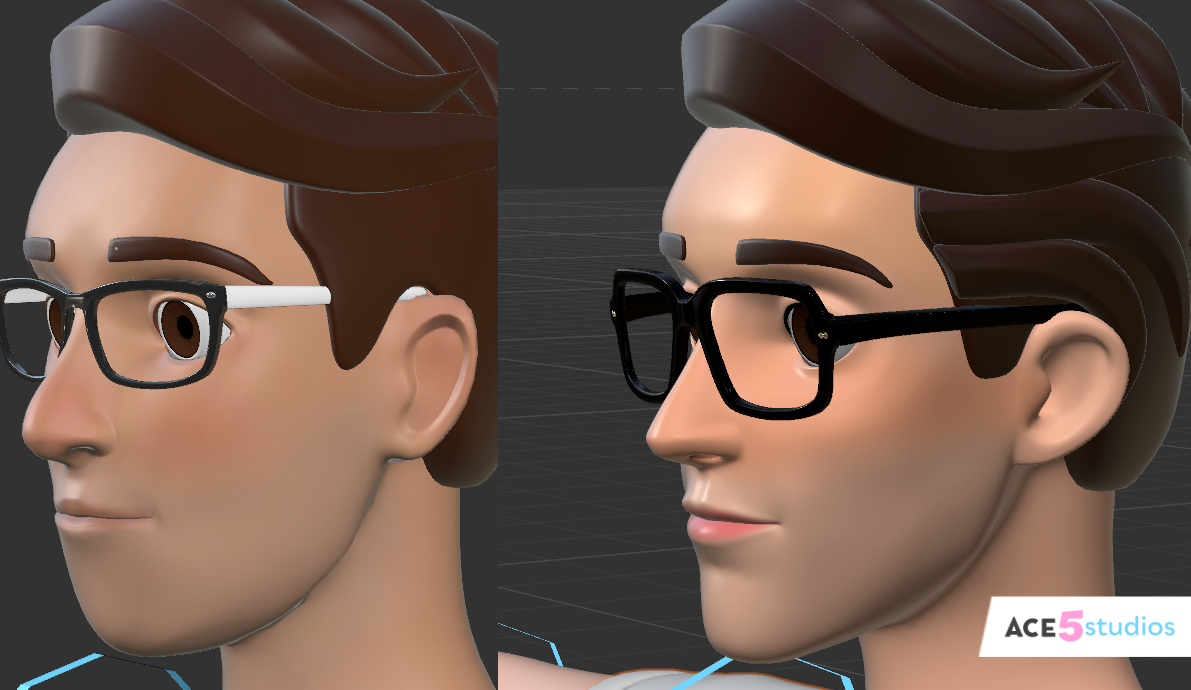With the inevitable abandonment of the professional market by Apple lots of people are switching to windows. And more often than not either building their own workstations or at least picking the components and getting someone to build one for them.
A couple of questions keep coming up in the forums, so i thought i’d write a short article about the main questions.
Desktops
What processor?
Update 2019: Amd ryzen and Thread rippers have completely dethroned intel performance wise. They have great single and multi core speeds. Also Since GPU renderers are becoming more and more capable, signficanlty less rendering is being done on them. So you might not need all those cores. But for simulating particles and dynamics, still very useful.
So there are 2 main factors to consider when picking a CPU. You have processors with lots of cores, but lower core clock speed. For example the i7 5820K wich has 6 cores, but runs at 3.4ghz and then you have the i7 6700k which has only 4 cores but runs at 4ghz. Generally it seems to make sense to go for 6x 3.4ghz, rather than 4x 4ghz. But that is only true if what you need the power for is multi-threaded. And unfortunately lots of stuff still isn’t multi threaded and runs on only one core. For example the viewport in cinema4d, Xpresso, character rigs, and most of the realtime stuff you see runs on one single CPU core, so you will get a more responsive viewport while working with a 6700K, but your renders will go slower ( assuming you are rendering with a CPU based renderer, more on that next).
Regarding Xeons. They only really make sense if you are going the Dual cpu route. But the previous issue with clock speeds is still in play. check the single core benchmarks and compare. The xeons usually score significantly less on those.
Check //cbscores.com for how CPU’s score in both single and multi core. Also make sure when googling for cpu scored, that you are looking at cinebench R15 results, not R11.5 ones. They don’t match up. There is also a cinebench R20 now, but there aren’t many cpu reviewed on it yet, so the scores aren’t as useful.
And Just a final note to make this all more confusing. Not all Ghz are created the same. If you check cb scores, you might notice that a 6700k scores more than a 4770k even though it has a lower clock speed. Thats because its a newer generation and its more efficient. So a 5 year old CPU at 3.2 ghz won’t necessarily match a 3.2ghz cpu from this year.
What Video card (GPU)
Nvidia. Not because its faster, but because all these awesome GPU renders that are out run on CUDA, and thats an Nvidia technology. I’ll be writing an article on them later.
You want to go for the GTX series. Quadro cards have no real benefit in Cinema4D or the GPU renderers. ( maya apparently benefits from Quadro cards).
I think rendering is moving mostly towards the GPU. So i’d buy a motherboard with at least 3 pci-x slots. and fill them up as your budget allows. When rendering with a GPU renderer you want as much ram as possible, because you cant use your system ram. Or in the cases where you can use it, is slows down significantly. But honestly its rare that scenes are that large.
PCIe lanes. The amount of lanes your CPU has affects the amount of GPU’s you can run. It is recommended you have 8x for each card, but apparantly some engines allows you to run them at 4x lanes each. Some of those PCIe lanes are reserved for nvme drives and other stuff.. so you have to check that on your CPU spec sheets.
I wrote a more expansive article on what you need to know for GPU rendering here: //ace5studios.com/gpu
Hard Drives
SSD’s are great. Don’t stress too much on which one, just check tom’s hardware for recommendations, and get that one. Adata are ussually a good budget choice, otherwise go Samsung i think.
There are 2 main types to concern yourself with SATA ssd’s which plug in with a cable, most motherboards support about 6 of them. And M.2 ssd’s which slot in to your motherboard. Most motherboards support 2 or 3 of them. M2 are ussually faster. So put stuff that needs to be fast on them. Video cache, sim cache etc.. For OS and other stuff use the SATA drives.
RAM
Just get 16GB for now, but make sure your motherboard supports at least 64GB. Careful don’t cheap out and get the slowest ram, that noticeably lags your workflow. But also don’t go overboard and buy the fastest, because without overclocking you’re not going to feel the difference. Check what your processor supports without overclocking.
If you are getting an AMD ryzen or threadripper, google ” your processor name + what is the best ram” there are some speed matching issues that crop up with the AMD architecture. Lots of tests done for various cpu’s. check this stuff yourself.
Also i notice some people think more ram will make your system faster. This is true to some extent, but its not like adding more ram will make your existing system faster. Think of ram like waiters at a restaurant. If you don’t have enough of them you REALLY need more, otherwise everything grinds to a halt. But once you have enough, adding more won’t help. They will just sit there with nothing to do. Ram is similar. If you don’t have enough it’s going to slow you down a lot because, you computer will have to swap files in and out of ram from your hard drive. But if you have 16gb, and don’t use the whole capacity adding more wont have any effect.
Overclocking
I personally don’t overclock, but if you want to tinker with stuff its a viable choice, often making up for the shortcomings of multi-core processors. But keep in mind that it may void your warranty. Do a lot of reading about before just pushing at numbers. 🙂
Case and PSU
If you are building your own system yourself, don’t skimp on the case, make sure it has screwless everything, will make the whole build a much more pleasurable activity. Youtube reviews of cases are a good place to start with when picking a case.
The size of the powersupply you will need depends on the components you are using, once again google is your friend here. spend a bit extra and get a name brand one, like a corsair ( and not the cheapest one). It’ll run quieter and probably last longer. Also less chance of it getting hit by a surge and frying the rest of your system. Never happened to me, i used to use cheapest PSU’s i could get and lots of them died, but no permanent damage. But the volume is a noticeable difference.
My build
Currently I’m on a ryzen 2700x with a 2060 super and a 1060 in there. AMD’s have this nice bonus of have a single socket design for the last 3 generations, and the 4th gen cpu’s about to come out should work in more recent existing motherboards. I bought a 3rd gen motherboard, put a 2nd gen cpu in it, because it was dirt cheap, and only slightly slower than the 3rd gen equivilant. and if it’s not enough power for me, i can easily plug in a higher end 3rd gen, or 4th gen cpu when they come out. I have 32gb of ram, which is plenty for what i do.
Looking for builds? I approve these 🙂
Here is a great list of builds by Sage: http://www.thesagery.com/builds/
Laptops
As October 2020, Asus have some amazing laptops with 4th gen AMD processors which absolutely crush the intel processors, and they seem to be the only Laptop manufacturer to pair them with Nvidia cards. Only major issue is they are mostly sold out. But keep an eye out for the Asus G14 and Asus G15.
The new Acer Triton 500 i think is my personal favorite right now. It comes with some powerful GPU option and looks real slick. It does come with the 20 series of nvidia GPU’s. which aren’t full utilized by GPU render engines yet, but i guess it’s future proofing.
For battery life the Razer Blade seems the undeniable winner in all its Forms. Its basically a black Mac book pro, with real hardware inside and a really ugly font on the keyboard.
read more here: //www.engadget.com/2014/05/06/Razer-Blade-14-review-2014/


I personally got the MSI GS60 with a GTX970M with 6gb of memory on it. It seemed to be a good balance of price/performance for me. I personally dont really care about battery life. If im doing work i’ll find an outlet, for everything else i have tablets and phones.
The thing that bummed me out most, was the lack of a windows key on the left side of the keyboard.
read more here: https//www.engadget.com/2014/04/17/msi-gs60-ghost-review/ ( but keep in mind, internals are always updated, so basically just look at the pictures)
update: now with the the 6th gen i7 in the GS60, it support upto 32gb ram. by using 2x 16gb sticks.
[Update]: For australians, you might want to check out: //metabox.com.au/store/index.asp they seem to have some nice configurations there.
And finally always remember to do your research, google benchmarks, check forums for feedback on products. Do your homework, things change quickly. Even people who work at computer shops often cant keep up. For example, my 4790k when i bought it, turns out in the combination of the motherboard i bought it was automatically overclocking and then throttling due to heat, had to install new firmware on the motherboard, and then use intel extreme tuning utility to force to just go at stock… And all because i bought the newest thing that was out. Could’ve just went for the 4770k which was tried and true, and only a slight bit slower.
Hope this article helped!
Cheers,
Aleksey







Pedro Ramos (@sozeartwork)
Thanks a lot for your article. This is the kind of information I needed right now. I’m starting to look into building my workstation (or get someone to do it for me), as the only “pro” choice in the Apple world is the uber-expensive Mac Pro, and apparently many people are switching to PC lately.
aleksey
Hey Pedro,
Glad it helped. There are plenty of videos online about how to build your own pc. Its about the same difficulty level as a complex lego set. just make sure to not cheap out on the case, because a good case with screwless design makes everything much easier.
Or just find a small local PC shop, Im sure they’ll enjoy building it for you as most of their orders are lower end stuff.
Cheers,
Aleksey
Hoy'i Chew'i
Thanks for the article! I think I might get fast i7 for single core application like sketchup. but I do many cpu cores for rendering. but you mentioned render farms. what render farms do you use? Thanks!
aleksey
hey, sorry for late reply, didn’t get email notification…
I use renderfeed, newton render farm and right now looking into trying renderfarm.nl.
Ace5studios | Thea Render 1.5 Review
[…] Thea is a hybrid GPU and CPU renderer with plugins for a bunch of applications. I use cinema4D so that’s the awesomeness im going to cover here. The GPU part (the super fast part) is CUDA based, so you will need an Nvidia card. so if you have a new mac pro, this isn’t going to be super useful to you. Read my hardware building article here //ace5studios.com/hardware […]
Thomas
Hi, I just read your article and can confirm all your statements. I personally have a i7 4790k with 32 GiB Ram and a Nvidia GTX 960 with 6 GiB Ram. Works fine for me in C4D and Thea. 🙂
aleksey
awesome man! thanks for confirming everything 😀
how did you get 6gb on a gtx 960? that seems awesome.
Peppe
hello! Thanks for the great tips!
I’m just building my new Pc, I’m migrating froma Mac Pro 12 core 3.03 Ghz and I’m wondering if Cinema4D will not take advantage from a Dual XEON E5-2680 V3 2.5Ghz 12 Core or an Intel Core i7-5960X 3,0 GHz?
I will use Octane render with 2 gtx 980ti and I use also After effects cc2014 to take advantages from multithreading and Realflow/Houdini for fluids.
Below there is my configuration:
cpu: Intel Core i7-5960X 3,0 GHz (Haswell-E) Socket 2011v3
or
dual XEON E5-2680 V3 2.5Ghz 12 Core
motherboard: X99-E WS 3.1 DDR4 extended-ATX Socket 2011-3
PSU: AX1200i Digital 1200W Modulare 80 Plus Platinum
GPU’s: 2 x Gigabyte GTX980 Ti – G1 Gaming – Liquid Cooled
RAM: 64GB Kit Vengeance LPX DDR4-2400 CL14 (8x8GB)
SSD: Samsung 950 Pro da 512GB Pci-Express
HD: 4TB SEAGATE BARRACUDA – Sata 6GB/S 64mb
WATER COOLING: XSPC Kit Water Cooling RayStorm D5 EX420
FAM: 2 x NOCTUA VENTOLA 140×150 – NF-A15-PWM
You’re advice is more than welcomed!
thanks!
aleksey
it depends on the work you do. As i said, if you are only using octane, then just get the i7. whats the point of the dual cpu? if you really need cpu power, just send it to a farm with the money you save 🙂
don’t get seagate HDD. they terrible. Hitachi apparantly make the most reliable ones. ( google back blaze, drive reliability).
my advice is to use thea 🙂
suleymankoc
Hello. “Arnold render” I think for the GPU is not very important. What are your thoughts?
aleksey
Hi, as far as i know arnold render does not use the gpu at this moment. so it will have no affect on render speed.
bysuleymankoc
Thank you 🙂
nicky smith
hello Aleksey
now that it’s 2017,, i was wondering if any of the specs above are now out of date?
as i got to your very informative page from the link you put on the post i did on the x-particle forum a while ago,, when i was stuggling with some features with my mac pro tower/bin
//www.x-particles.com/forum/viewtopic.php?f=4&t=1297&p=7290#p7290
anyway i’m finally going to be making the jump to a PC workstation,, so please me know if so specs are to be updated from the above
i’m mainly be using C4D & adobe stuff,,, & most definitely planning to start using more x-particle fluids & TFD & finally Octane renderer,,, & also want to delve more in VR.
thanks
Nic
aleksey
Hey Nic,
Well the concepts carry on, but obviously there is the gtx titan now, and the gtx 1080. And the strongest single core cpu is the 7700k instead of the 6700k. But you should always look up the cinebench scores of cpus. and gpu benchmarks for the video card you chose. Im not 100% sure, but i think octane is still not fully optimized for the 10 series gtx cards, so they perform only slightly better than the 9 series.
cheers,
Aleksey
nicky smith
Hey Aleksey
thanks for the quick response & sorry for the delay in responding,, very helpful advice
i was wondering what you though of the new Ryzen 1700X or 1800X,, as in your article you say that “AMD left the professional arena a while ago” but these new Rysen CPU have come highly recommended.
also what’s your thoughts on the new GTX 1080ti? they seems pretty good to me
aaah so many options out there,, hard to chose
thanks
Nic